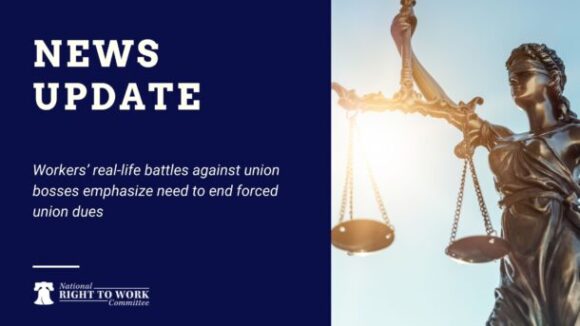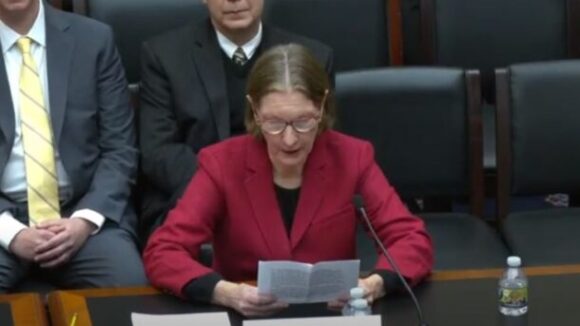Foundation-Aided Employees Tell Congress: All Workers Need Right to Work
Workers’ real-life battles against union bosses emphasize need to end forced union dues
Mark Mix Testifies on Capitol Hill: Block NLRB Assault on State Right to Work Laws
“Right to Work is fundamentally an issue of individual freedom”
 Washington, DC (June 3, 2015) – Mark Mix, President of the National Right to Work Committee, testified this morning before the House Committee on Education and the Workforce to explain why Congress should both block an attempt by the National Labor Relations Board (NLRB) to gut Right to Work Laws in 25 states and move to pass the National Right to Work Act.
Washington, DC (June 3, 2015) – Mark Mix, President of the National Right to Work Committee, testified this morning before the House Committee on Education and the Workforce to explain why Congress should both block an attempt by the National Labor Relations Board (NLRB) to gut Right to Work Laws in 25 states and move to pass the National Right to Work Act.
Mix urged Congress to block the NLRB from proceeding with what he called “a reckless and biased scheme to overturn 60 years of settled law, by authorizing so-called ‘fee for grievance’ rules that would guarantee union officials the power to extract more money from independent workers.”
Mix explained that, “Workers deserve the right to choose for themselves whether a union’s services are good enough to earn their support. Union monopoly power means workers are forced to go to the union in a grievance, just as they are forced to let the union ‘represent’ them in everything else about their job. It’s wrong to force people to pay for representation they do not want and believe they would be better off without.”
Mix further detailed that “History has shown that union officials all too often initiate on-the-job discrimination, which forces a worker into the grievance process the union bosses control, in order to punish him or her for not joining the union in the first place.”
“Congress, of course, can prevent the NLRB from implementing this scheme by prohibiting it from spending any money pursuing this case,” said Mix.
Mix further noted that, “The cause of worker freedom would be best served by “enacting the National Right to Work Act (S. 391/H.R. 612) which was introduced in Congress earlier this year in the Senate and the House. This simple, one page bill would free millions of American workers from the shackles of compulsory unionism.”
Currently federal law empowers union officials to enact a forced dues requirement that allows for a worker to be fired solely for refusing to pay union dues or fees. The National Right to Work Act would repeal the provisions of federal law that allow union officials to compel workers to pay union dues.
In his written testimony to the Committee Mix focused on the fundamental injustice of compulsory union dues or “fees”, including grievance-processing fees:
“Under current law in all 50 states, employees who never requested nor wanted union representation can be forced to accept a labor union as their exclusive monopoly bargaining agent and be forced to work within the union’s monopoly-negotiated contract and forced to accept the union’s grievance process. In the 25 non-Right to Work states, this injury is compounded by forcing workers to pay for this so-called “representation” that they did not ask for, do not want, and may even be working against their best interests.
But the NLRB’s new “fee-for-grievance” scheme would give union officials a way to extract “fees” from nonunion workers — fees that could in fact be greater than regular dues — leaving the Right to Work Law on the books, but severely emasculated…”
“Right to Work is fundamentally an issue of individual freedom. The NLRB’s plan to undercut Right to Work laws is an outrage to working men and women all across this country. I urge this Committee, and this Congress, to take all measures necessary to prevent the rogue NLRB from implementing this scheme, including ultimately passage of the National Right to Work Act.”
###

Workers’ real-life battles against union bosses emphasize need to end forced union dues

Jeanette Geary, who fought a 12-year legal battle against union bosses just to enforce her rights, testified for the National Right to Work Act.

Brunilda Vargas, a Philadelphia public defender whose workplace was unionized by the United Auto Workers, testifies for the National Right to Work Act.